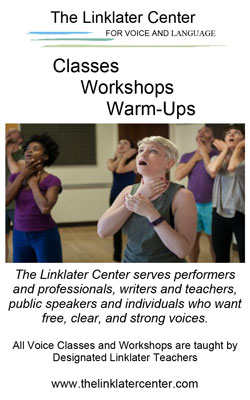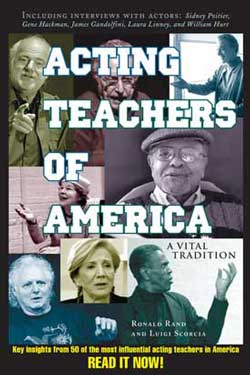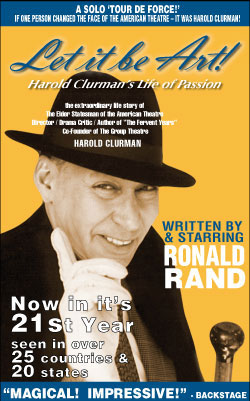Carol Lawrence
 An actress, singer and dancer of the first magnitude, Ms. Lawrence created the role of Maria in the Leonard Bernstein/Jerome Robbins Broadway classic, “West Side Story,” receiving a Tony Award nomination. Miss Lawrence went on to star in several other Broadway productions including “Saratoga,” “Subways Are For Sleeping,” “Nightlife,” “I Do, I Do,” and “Kiss of the Spiderwoman.” She appeared in the television movie of Jason Miller's “That Championship Season,” Off-Broadway in Jason Odell Williams's play, “Handle with Care.” Ms. Lawrence has also starred in national tours of “Funny Girl,” “The Unsinkable Molly Brown,” “The Sound of Music,” “Sweet Charity,” “No, No Nanette,” “Woman of the Year,” and “Sugar Babies.” Carol appeared in Los Angeles productions of “Do I Hear A Waltz?,” “Follies,” “Mame,” and “Amy’s View,” receiving the LA Drama Critics Award. Her many television appearances include “General Hospital,” “Touched by an Angel,” “The Commish,” “Murder She Wrote,” “Sex And The City,” “Lois and Clark,” “Simon & Simon,” “Flipper.” For three years, Carol hosted her TV talk show, “The Carol Lawrence Show, ” hosted five shows on “Chef du Jour.” She created her own cookbook, I Remember Pasta, and an aerobic, dancercise video, “Broadway Body Workout.” Ms. Lawrence has received Grammy Award nominations and numerous humanitarian awards including City of Hope’s “Woman of the Year” Award, and “The Spirit of Life Award.” Her autobiography, with Phyllis Hobe, is entitled Carol Lawrence: The Backstage Story.” She received a star on the Hollywood Walk of Fame. Her proudest achievements will always be her sons, Christopher and Michael Goulet.
An actress, singer and dancer of the first magnitude, Ms. Lawrence created the role of Maria in the Leonard Bernstein/Jerome Robbins Broadway classic, “West Side Story,” receiving a Tony Award nomination. Miss Lawrence went on to star in several other Broadway productions including “Saratoga,” “Subways Are For Sleeping,” “Nightlife,” “I Do, I Do,” and “Kiss of the Spiderwoman.” She appeared in the television movie of Jason Miller's “That Championship Season,” Off-Broadway in Jason Odell Williams's play, “Handle with Care.” Ms. Lawrence has also starred in national tours of “Funny Girl,” “The Unsinkable Molly Brown,” “The Sound of Music,” “Sweet Charity,” “No, No Nanette,” “Woman of the Year,” and “Sugar Babies.” Carol appeared in Los Angeles productions of “Do I Hear A Waltz?,” “Follies,” “Mame,” and “Amy’s View,” receiving the LA Drama Critics Award. Her many television appearances include “General Hospital,” “Touched by an Angel,” “The Commish,” “Murder She Wrote,” “Sex And The City,” “Lois and Clark,” “Simon & Simon,” “Flipper.” For three years, Carol hosted her TV talk show, “The Carol Lawrence Show, ” hosted five shows on “Chef du Jour.” She created her own cookbook, I Remember Pasta, and an aerobic, dancercise video, “Broadway Body Workout.” Ms. Lawrence has received Grammy Award nominations and numerous humanitarian awards including City of Hope’s “Woman of the Year” Award, and “The Spirit of Life Award.” Her autobiography, with Phyllis Hobe, is entitled Carol Lawrence: The Backstage Story.” She received a star on the Hollywood Walk of Fame. Her proudest achievements will always be her sons, Christopher and Michael Goulet.
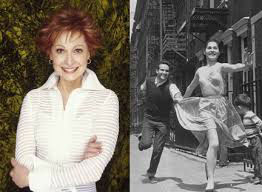
How does your strong passion for creating keep fueling you?
It’s just trying to stay on the cutting edge where people hearts and needs are; its really required to supply a kind of place in which people can come to the theatre and hopefully after the performance, the audience has been enriched, informed, and hopefully, coming out a better human being.
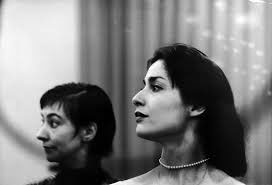
Carol Lawrence and Carmen Gutierrez (Official Masterworks Broadway)
When I saw you not too long ago Off-Broadway in “Handle With Care,” it seemed you had such a good time. What drew you to want to act in that comedy?
I wanted so much to come back and act on a stage in a play that had integrity. We were right on 43rd street, near to the theatre district. It was a lovely romantic comedy, and the audience loved it. I think the show was a crossing religious boundaries, dealing with love and dating. I wanted the exercise of playing an older woman, a grandmother with a rich heart who had been touched out of her comfort zone.
Did singing always come naturally for you growing up?
I come from large Italian family, which is the Italian norm. When my father was born, he was poor, living in the poorest “anklebone of the boot” of Italy, in a small town, Trivigno, in a mountain range so gorgeous where everywhere you turned was a picture-postcard view.
My grandfather was the rogue of the little village, a very cocky little Italian rogue who led every Catholic festival. He got to do all the dances in the festival, every wedding, every grand march.
I understand you grew up watching Gene Kelly and Fred Astaire — and later had the opportunity to dance with Gene Kelly.
It was a dream come true. Only because I started dancing at the age of five learning ballet, dancing all kinds of dance, the entire scope.
I was married to Robert Goulet, and my two sons are replicas of him, very handsome, very bright and charming, but neither of them ever exhibited the need to be in “Show Business.”
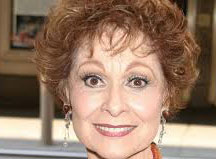
I believe when you aspire to Broadway or to the opera or to ballet or wherever your passion leads you, you have to be so addictive to performing — to take it away from you would mean death. I never stopped growing or seeking a role that would enrich me.
And Uta Hagen was a strong influence on you as an actress—
She was my mentor. She was the one I learned the most from. Along with Wynn Handman, and Ludwig Donath, who was one of the magnificent stars of “The Dybbuk,” directed by Sidney Lumet. For him, acting was a religious experience. Actors today have to keep working, training.
You must have started quite young —
My mother put patent leather shoes on my feet and took mw to a dance studio when I was five. We walked in and we were looking at a mirror, and the teacher made us start dancing immediately. I was so young, but I looked at the teacher, and on the spot, I came to a revelation. This was it for me. If there was music, I danced.
I began dancing on every surface I could find. My mother finally gave me two feet behind the stove and said: “Dance your heart out,” and I did. She didn’t thwart my need to practice and learn my craft. I was making terrible black spots on the floor, so she pulled the stove away from the wall, and I danced behind the stove and wore the linoleum pattern out and I wore my tap shoes out and outgrew them. It took over my life. I had my one nightclub act at thirteen which I did for three years; I’m basically a hoofer at heart. That’s how I began.
My father actually wanted me to be a lawyer, but I was a dancer, and my first audition was for my first Broadway show, it was my first day in New York City, it was called “Borscht Cafe,.” My father wanted me to come back to Chicago. But I stayed and did what I loved, and Joel Grey was in the show, and the Barry Sisters, and I had a lot of solos and did the curtain speech, presenting Mickey Katz.
When you landed a role in “Pipe Dream” you almost had a chance of working with Harold Clurman.
He was a fantastic human being, but I was really uninformed about the business of the theater at that point.
When I auditioned, they all agreed to cast me but I was doing a show at The Lyric Theatre in Chicago and I couldn’t be released. So unfortunately, I never had the chance to work with Clurman.
It must have been such a joyous relief to be cast after thirteen auditions you had landed the role of Maria in “West Side Story,”

“West Side Story”
It was a relief because Jerry (Jerome) Robbins couldn’t make up his mind, and finally he did. I ended up doing two shows “Shangri-La” and “Ziegfield Follies” during those two years. It was a difficult time but I was working with Leonard Bernstein, Jerome Lawrence, Arthur Laurents, Stephen Sondheim — they were all geniuses! It was a show that changed everything - the audience loved it, they recognized the tradition that it brought to the Theater, and the message that even in the midst of gang wars, that intolerance is not to be tolerated.
There was no one in the world who maintained that kind of control that Jerry held. He was so successful as a choreographer but he had never directed a Broadway show before “West Side Story.” He barely knew anything about directing; he had no idea how to communicate as a director. He worked from being a choreographer — his idea was to push the dancer, putting down everything the dancer did until they’re trying to prove their worth to him, and Jerry got it from us through brute force. He was a genius and you loved him and you hated him.
There was a gritty reality to the show - and he knew his power and could read people faster than anyone I’ve ever known. He knew which button to push to find your vulnerabilities, and he’d do it to you in front of the entire company. And he never stopped pushing to make it “real.” Actors would really beat each other up during the show, we’d always have to have a doctor on call.
When Jerry and Lennie (Leonard Bernstein) were together, you couldn’t believe the scenes. Jerry would pick on Lennie (Leonard Bernstein) in front of everyone. The collaborators, including Arthur Laurents, had made a rule to never argue in front of the company. Except Jerry would go against his own rule and we’d all cringe.
We started out as “Gang Way” when we went out of town, first originally it was “East Side Story,” with a catholic girl and a Jewish boy but we became “West Side Story,” after Arthur Laurents and Leonard Bernstein were in Los Angeles at a pool and they read a newspaper that said “Gang Kill Five in A Rumble,” and they called Jerry in New York City and made it the Puerto Ricans against everyone else.
Jerry “froze” the show in Washington D.C. — keeping everything where it was except he felt the ballet was old-fashioned. We ended up doing an eight hour rehearsal only on the ballet, which was deathly exhausting, but we were all strong and made it through.
Larry Kert and I seriously had our sanity tested. We'd come out of the sessions “bleeding at the gill.” He was an angel to work with, we all loved him. Larry would say, “Let’s go work the balcony scene with Lennie,” and Lennie would find a piano and he’d nurture us through it.
“West Side Story” was nominated for six Tony Awards, and you received a nomination as Best Featured Actress.
I actually got to meet Larry (Laurence) Olivier at the Tony Awards that year. He handed me the Tony that Oliver Smith won for Best Set for “West Side Story.” Jerry (Jerome Robbins) didn’t win as Best Director, but he did receive the Tony for Best Choreography.
Later on, I asked the critic, John Chapman, why “West Side Story” didn’t win the Tony for Best Musical that year. He told me that: “as a group of American critics we couldn’t glorify juvenile delinquents in the middle of a Cold War with Russia.”
It’s the 60th anniversary of the original “West Side Story production, so I’ve been working on that.
I had the good fortune of taking a course at NYU and Richard Rogers, Stephen Sondheim and Goddard Lieberson came and shared their insights. I know Goddard Lieberson was the producer for the recording of “West Side Story.”
Absolutely. He was there every minute of the time, and his decisions were excellent, deciding what the cuts would be, what we’d use; he was instrumental leading us through all the whole thing. He was a wonderful elegant man and I admired him very much.
You’ve also had the opportunity to play amazing roles including Lady Guinevere in “Camelot.” How did you develop your particular approach to who she was?
You can see Lady Guinevere being treated like a pawn to a king. She’s very naive about sex and love and how attracted she becomes to Launcelot. I decided to play her like a tomboy, that she’s very strong-headed. So when I arrive at the hillside, I ran on the stage and took a nosedive so I wouldn’t be seen. It was lively and gave me a chance to play the humor of the situation. She’s also extremely stubborn; I loved doing the role. For that production, I also made them add a dance to the show.
Also we dramatized the action in the show much more. In the big climax scene, I was brought in with my hands over my head tied to a stake. I say: “Let’s put all the action on stage; it’s makes it all quite wonderful.”
It’s been important for you to help others. You had volunteered for an organization called World Vision that has provided aid to sick and impoverished children in Africa. You made several trips there, and created documentaries about the dire need to help the children there.
I have always felt strongly because of everything I have been given; I have to give back. When I was went there, I was a little frightened. There was a Civil War in Somalia, in Ethiopia, and the tribes were still feuding. When we about to land in a helicopter, the pilot told us that there was a raid going on below us. Armed soldiers from Idi Amin with advanced artillery had crossed the border and were killing poor nomads.
When we were finally able to land, we visited a school helping children. We help as much as we could, bandaging the wounded. They asked us for water and supplies, and I tried to do everything I could.
I went there because the children were starving, and World Vision had pledged to create a campsite in Somalia. In a short time, it mushroomed from thirty thousand people to over seventy thousand, and there were so many children in the camps. I tried to help in any way I could, but we didn't have enough milk to feed them all. Some mothers had to decide which of their children would receive food to survive. I thought of my sons who were born fourteen months apart and I couldn’t imagine having to make that kind of a choice.
Once the documentary appeared with me holding the children, telephones rang off the wall and support streamed in. I felt I was trying to honestly show a woman who wanted to help, and it was what the world needed to hear.
One of the most important things we have in this world is our faith and forgiveness for ourselves and for others, which can give us a lot of strength —
Being Italian, and growing up in a home of high emotions, I know what you mean, I grew up in a house with several men in the family; it was like being in an opera. When things are not going well, they get it out of their systems, there’s so much drama. And I would get depressed.
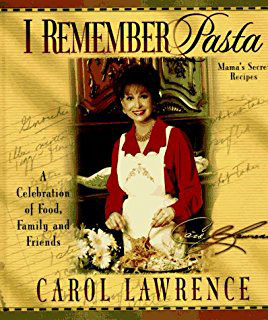
“I Remember Pasta” by Carol Lawrence
When I lost my father first, it happened on Father’s Day, and then when Bobby (Robert Goulet) decided to leave, and soon after that, when my mother died; it was very hard for me. As I was her only daughter, I went into a depression. The only thing that brought me out was doing stories and old Christian songs; I did concerts, and my album got nominated. I don’t know what I would have done - and so I just went into Jesus. He answered my call and He saved me.
One of the closest things to my heart is that I have an access to the veterans association, and I try and teach wounded vets with no legs, I try to be supportive to their families. I try and teach them to tap dance and to entertain their families; I find great joy in that.
When I look in to the mirror, I see who I am — I’m a hoofer. I feel if I can get one kid to feel the way I feel about dance or an adult to do a shuffle-ball-change, that’s it! I see how it really works, how quickly they respond. And we all need one more way to feel joy, and for me, its tap dancing - I say here it is! It’s important to keep moving, to keep the muscles strong; I say: keep dancing!








































